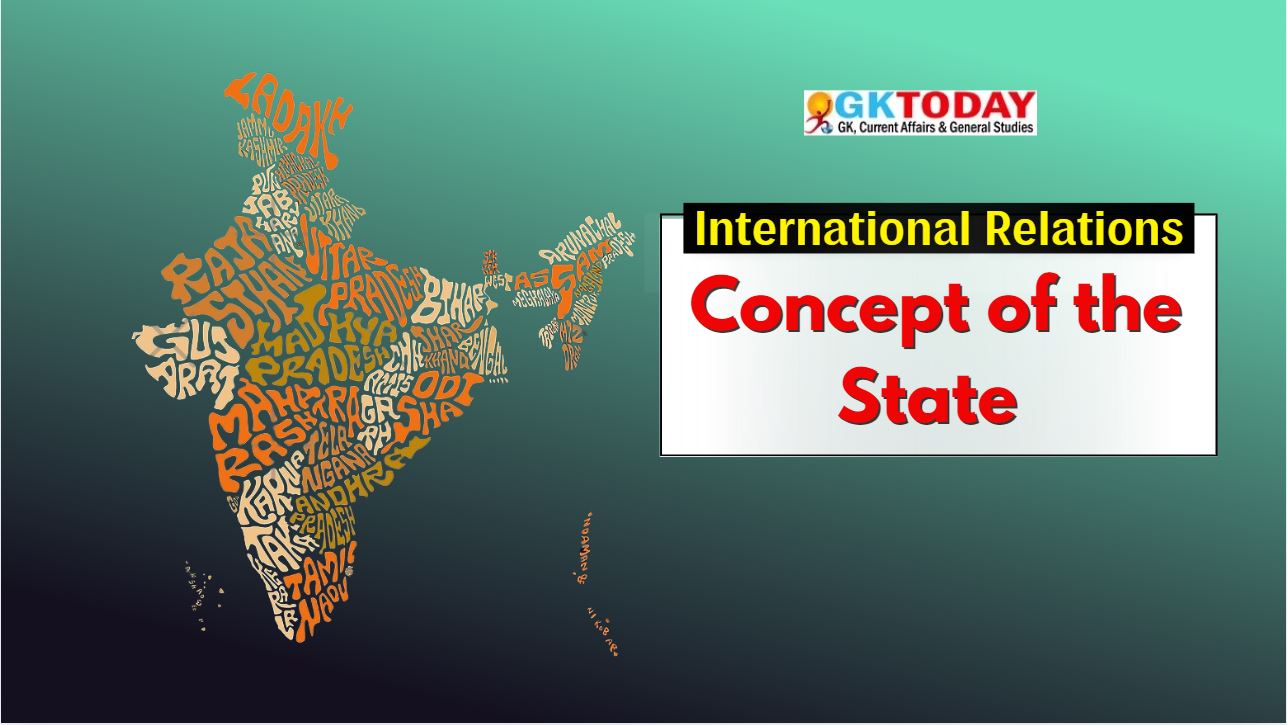UGC-NTA NET Political Science – International Relations – Concept of the State
The concept of the state is fundamental in the study of international relations. A state is a political entity that possesses a defined territory, a permanent population, a governing body, and the capacity to engage in relations with other states.
Definition of State
A state can be defined as a political unit with the following attributes: – Defined Territory – A state occupies a specific geographical area with recognised borders. – Permanent Population – It has a stable group of people residing within its territory. – Government – A political organisation that exercises authority and enforces laws. – Capacity for Relations – The ability to enter into relations with other states.
Characteristics of a State
The main characteristics of a state include: – Sovereignty – The supreme authority within its territory, free from external control. – Territoriality – The physical space that a state claims and governs. – Legitimacy – The recognition and acceptance of the state’s authority by its population and other states. – Recognition – Acknowledgment by other states, which can be formal or informal.
Elements of a State
The essential elements that constitute a state are:
- Territory – A clearly defined geographical area.
- Population – A group of people living in that territory.
- Government – An institution that enforces laws and maintains order.
- Sovereignty – The ultimate authority to govern without outside interference.
Types of States
States can be categorised into various types based on their structure and composition:
- Nation-State – A state where national boundaries coincide with cultural boundaries (e.g., Japan).
- Multi-National State – A state that includes multiple ethnic groups (e.g., India, Canada).
- City-State – A sovereign state that comprises a city and its surrounding areas (e.g., Singapore, Vatican City).
- Federal State – A state with divided powers between central and regional authorities (e.g., USA, Germany).
- Unitary State – A state governed as a single entity with central authority (e.g., France, Japan).
Theories of the State
Several theories explain the nature and role of the state: – Social Contract Theory – Proposes that the state emerges from an agreement among individuals to form a society, as discussed by philosophers like Hobbes, Locke, and Rousseau. – Marxist Theory – Views the state as a mechanism for class oppression, serving the interests of the ruling class. – Pluralist Theory – Suggests that the state acts as a neutral mediator among various interest groups. – Realist Theory – Asserts that the state is the primary actor in international relations, driven by national interests and power dynamics.
Functions of the State
The state performs several key functions:
- Maintaining Order – Establishing and enforcing laws to ensure societal stability.
- Providing Security – Protecting citizens from both internal and external threats.
- Economic Management – Regulating the economy and providing public goods.
- Social Welfare – Offering services like education, healthcare, and infrastructure.
- Diplomacy – Engaging in international relations and negotiations with other states.
Recognition of State
Recognition is important aspect of statehood: – De Jure Recognition – Formal acknowledgment of a state’s sovereignty and legitimacy. – De Facto Recognition – Acceptance of a state’s existence and control over its territory without formal recognition. – Criteria for Recognition – Effective governance, defined territory, permanent population, and the ability to engage in international relations.
Sovereignty
Sovereignty is a core principle of statehood: – Internal Sovereignty – The state’s authority over its territory and population. – External Sovereignty – The recognition by other states and the ability to participate in international relations. – Challenges to Sovereignty – Globalisation, supranational organisations (e.g., the EU), and non-state actors (e.g., NGOs, multinational corporations).
State vs. Nation
The Role of the State in International Relations
The state plays a central role in international relations: – Primary Actor – States are the main entities in international politics, engaging in diplomacy, treaties, and conflicts. – International Law – States are subject to international laws and norms that govern their interactions. – Global Governance – States participate in international organisations (e.g., UN, WTO) to address global issues.
Contemporary Issues Related to the State
Several contemporary issues challenge the traditional concept of the state: – State Fragility – Weak states struggle with governance, security, and legitimacy (e.g., Somalia, Syria). – Globalisation – The impact of global economic and cultural integration on state sovereignty and identity. – Environmental Challenges – The role of states in addressing climate change and transnational environmental issues. – Human Rights – The responsibility of states to protect human rights and the influence of international human rights norms.


